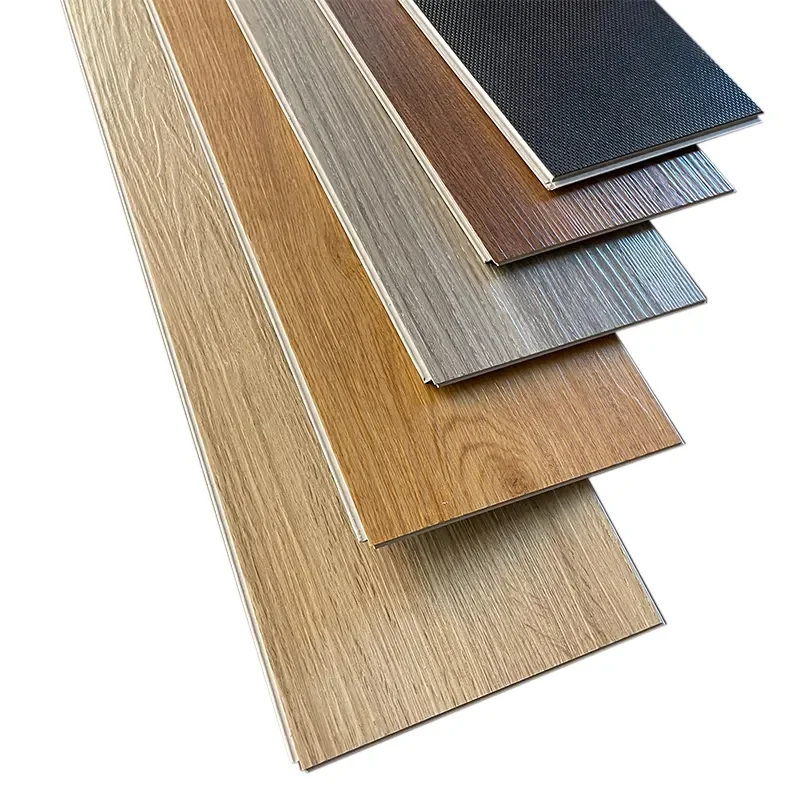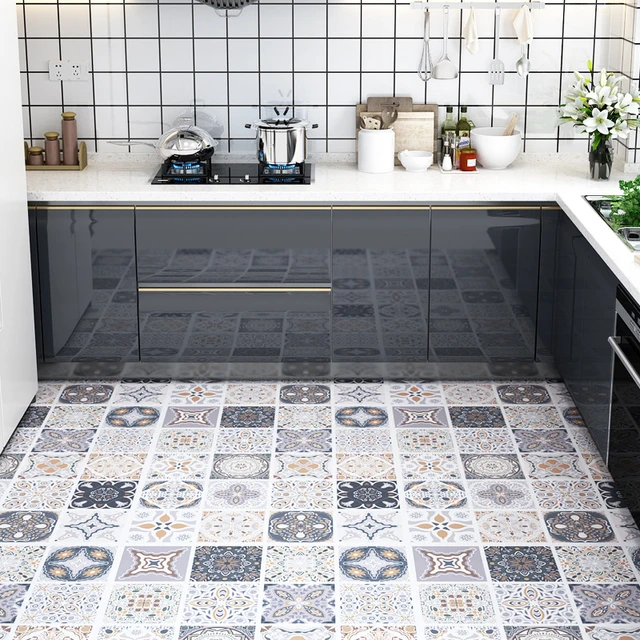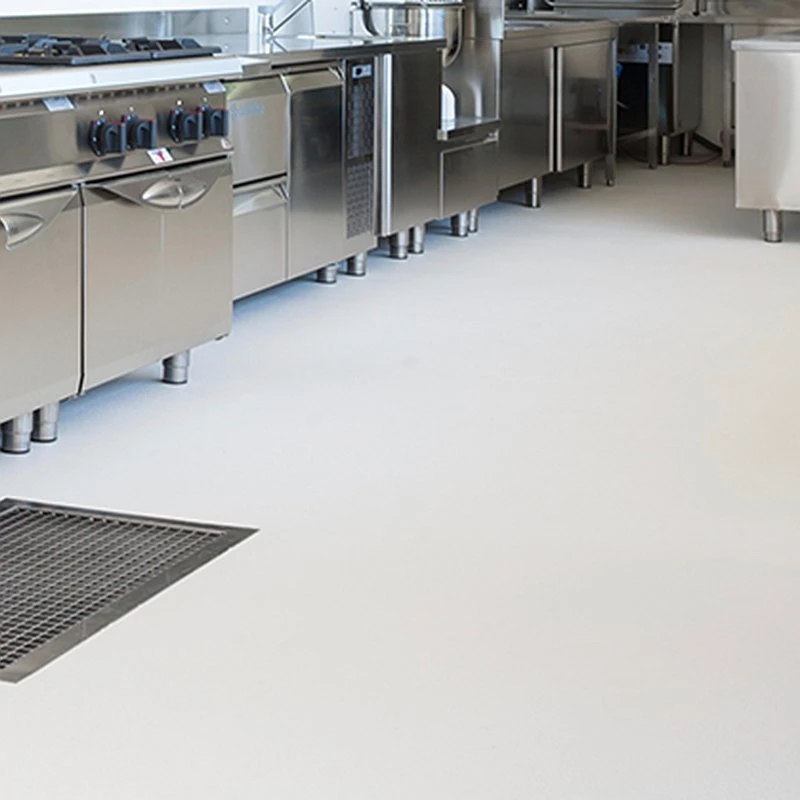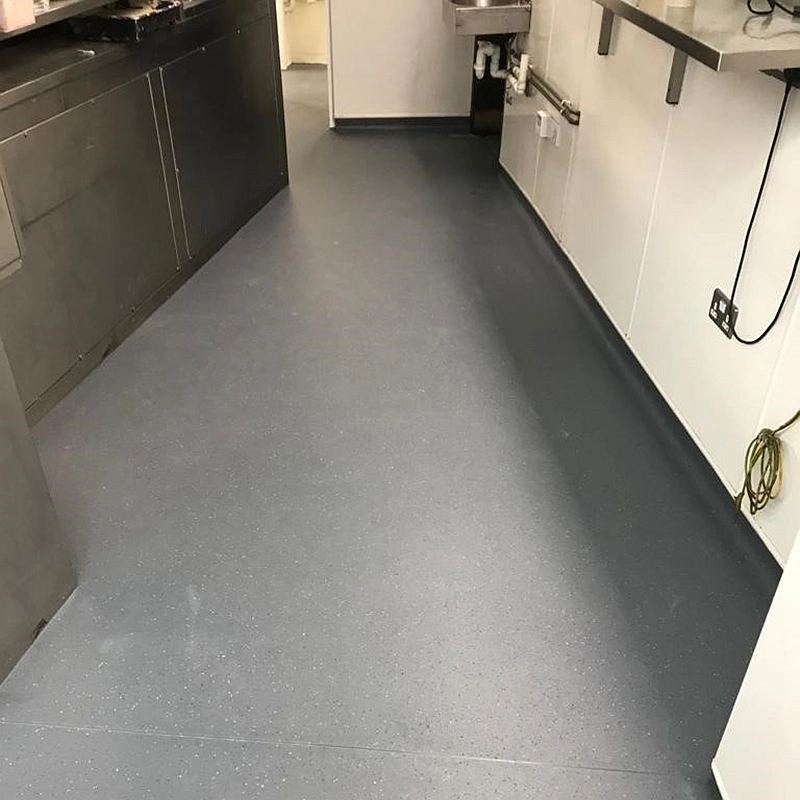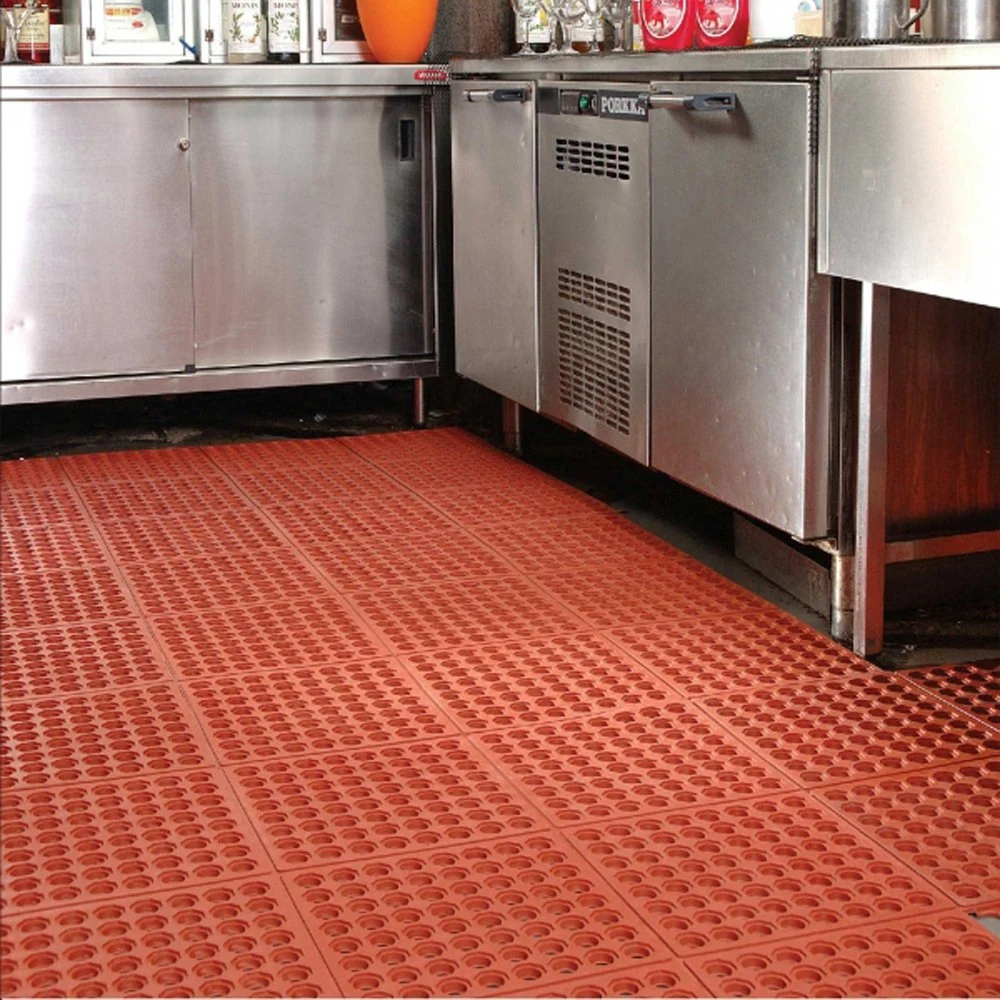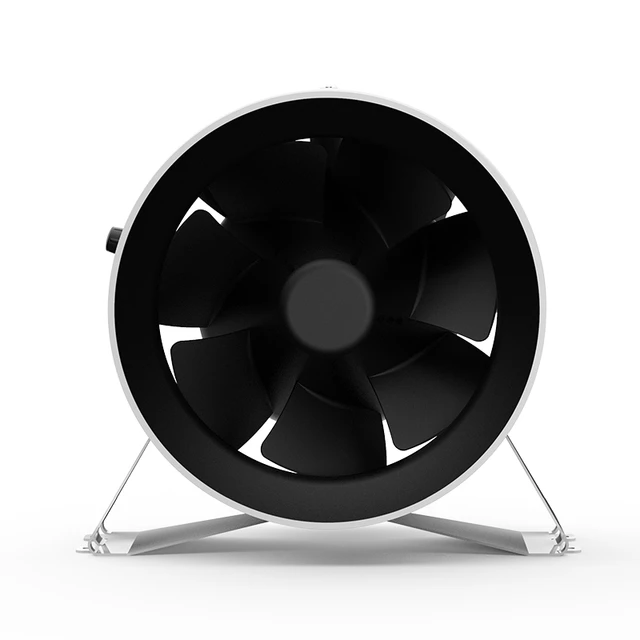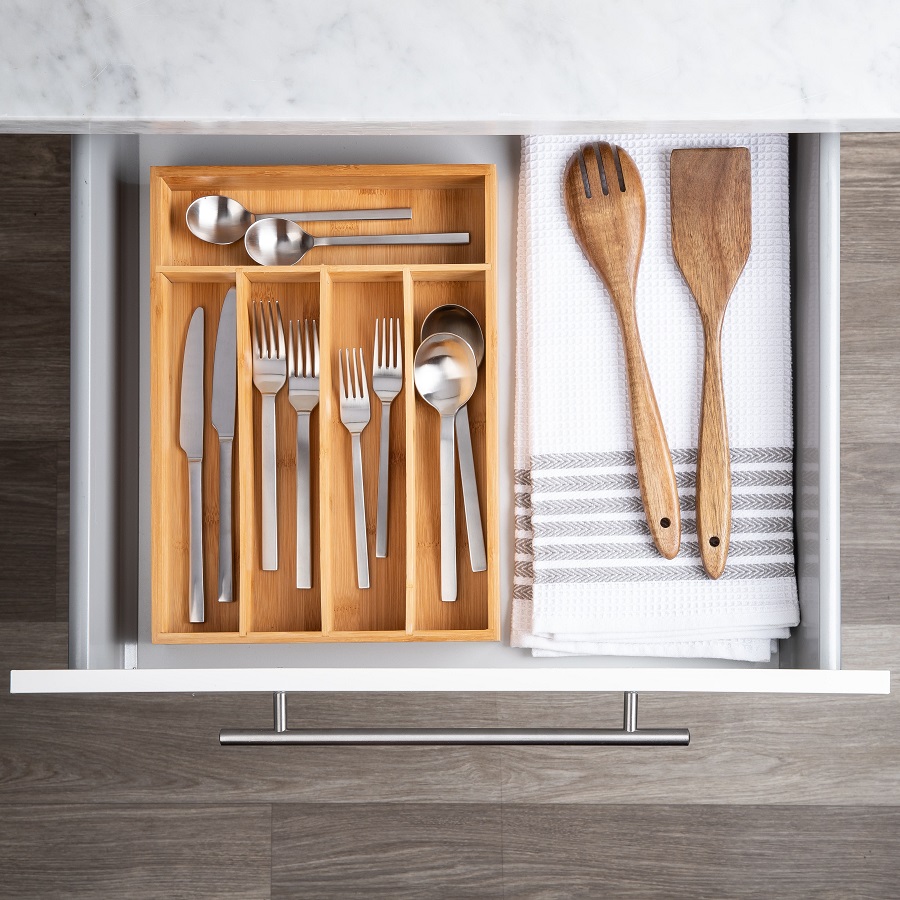Introduction:
Commercial kitchen flooring plays a crucial role in maintaining a safe and efficient work environment. It must withstand the demands of a busy kitchen while providing a hygienic and slip-resistant surface. In this article, we will explore the importance of commercial kitchen flooring, the types of flooring available, considerations for choosing the right flooring, installation and maintenance tips, and the benefits of investing in high-quality flooring. By understanding these aspects, you can ensure that your commercial kitchen flooring meets the necessary requirements for durability and safety.
Importance of Commercial Kitchen Flooring:
Durability:
Commercial kitchens are high-traffic areas that experience heavy foot traffic, spills, and constant movement of equipment. The flooring must be able to withstand these demands and remain in good condition.
Safety:
Slip and fall accidents are common in commercial kitchens. The flooring should provide a slip-resistant surface to minimize the risk of injuries.
Hygiene:
Commercial kitchens require a high level of cleanliness to meet health and safety regulations. The flooring should be easy to clean and resistant to stains, bacteria, and odors.
Chemical Resistance:
Commercial kitchens often use harsh chemicals for cleaning and sanitizing. The flooring should be resistant to chemicals to prevent damage.
Types of Commercial Kitchen Flooring:
Ceramic or Porcelain Tile:
These tiles are durable, easy to clean, and resistant to stains and moisture. They can withstand high temperatures and heavy equipment. However, grout lines may require additional maintenance.
Quarry Tile:
Made from clay, quarry tiles are highly durable and slip-resistant. They can withstand high temperatures and are suitable for heavy-duty kitchens.
Vinyl Flooring:
Vinyl is a cost-effective and versatile option. It is available in various styles and can mimic the appearance of other materials. It is easy to clean and provides a cushioned surface. However, it may not be as durable as other options.
Epoxy Flooring:
Epoxy coatings create a seamless and durable surface that is highly resistant to chemicals, stains, and moisture. They provide a smooth and easy-to-clean surface but may require professional installation.
Stainless Steel Flooring:
Stainless steel is durable, easy to clean, and resistant to water, stains, and heat. It is commonly used in commercial kitchens but may be expensive and noisy.
Considerations for Choosing Commercial Kitchen Flooring:
Durability:
Consider the expected foot traffic, equipment, and potential impact on the commercial kitchen flooring
when choosing a material with sufficient durability.
Safety:
Look for flooring with a slip-resistant surface, whether it has a textured finish or is made from a material with inherent slip-resistant properties.
Hygiene:
Choose flooring that is resistant to stains, bacteria, and odors. Smooth and seamless surfaces are preferable to minimize potential hiding places for dirt and bacteria.
Temperature Resistance:
Commercial kitchens often have high temperatures. Ensure that the flooring material can withstand heat without warping or damage.
Maintenance:
Consider the ease of cleaning and maintenance required for the flooring material. Some materials may require special cleaning agents or additional care.
Benefits of Investing in High-Quality Flooring:
Longevity:
High-quality flooring can withstand the demands of a commercial kitchen and provide a longer lifespan compared to cheaper alternatives.
Safety:
Slip-resistant flooring reduces the risk of accidents, protecting both employees and customers.
Compliance:
Using appropriate flooring materials helps meet health and safety regulations, ensuring a hygienic environment.
Aesthetics:
Well-maintained flooring enhances the overall appearance of a commercial kitchen, creating a positive impression for customers.
How to Maintain and Care for:
Regular Cleaning:
Sweep or vacuum the flooring daily to remove loose dirt, food debris, and other particles.
Use a mop or damp cloth to clean the flooring with a recommended cleaning solution that is safe for the specific flooring material.
Avoid using abrasive cleaners or scrub brushes that can damage the flooring surface.
Pay attention to hard-to-reach areas, corners, and grout lines to ensure thorough cleaning.
Immediate Spill and Stain Cleanup:
Promptly clean up spills and stains to prevent them from penetrating the flooring or causing discoloration.
Blot up liquid spills with a clean cloth or paper towel, and then clean the area with a mild cleaning solution.
Deep Cleaning:
Periodically deep clean the flooring to remove built-up grease, grime, or stubborn stains.
Consult the manufacturer’s recommendations for deep cleaning methods and products specific to the flooring material.
Consider using a commercial-grade floor scrubber or steam cleaner for a more thorough clean.
Grout Maintenance (if applicable):
If your commercial kitchen flooring has grout lines, regularly inspect and clean them to prevent dirt and grime buildup.
Use a grout cleaner and a brush to scrub the grout lines, and rinse thoroughly with water.
Consider resealing the grout periodically to protect it from stains and moisture.
Slip Resistance:
Regularly check the slip resistance of the flooring to ensure its effectiveness in preventing accidents.
If the slip resistance starts to diminish, consider using a non-slip treatment or adding non-slip mats or coatings to high-risk areas.
Preventative Measures:
Use floor mats at entryways and high-traffic areas to trap dirt and moisture, reducing the amount of debris brought into the kitchen.
Install floor protectors or pads on the legs of heavy equipment to prevent scratching or denting the flooring.
Avoid dragging heavy equipment or furniture across the floor to minimize damage.
Regular Inspections:
Conduct routine inspections of the flooring to identify any signs of damage, wear, or necessary repairs.
Look out for cracks, chips, loose tiles, or areas with excessive wear, and address them promptly to prevent further damage or safety hazards.
Professional Maintenance:
Consider scheduling professional deep cleaning and maintenance services periodically to ensure a thorough and effective clean.
Consult with professionals experienced in commercial kitchen flooring to address specific maintenance needs and receive expert advice.
By following these maintenance and care tips, you can preserve the quality, appearance, and safety of your commercial kitchen flooring. Regular cleaning, prompt spill cleanup, and preventative measures will help extend the lifespan of the flooring and maintain a clean and hygienic work environment. Prioritize the maintenance of your commercial kitchen flooring to ensure a durable, slip-resistant, and visually appealing surface that supports the efficient and safe operation of your kitchen.
Conclusion:
Commercial kitchen flooring is a critical element in ensuring durability, safety, and hygiene in a busy kitchen environment. By considering the importance of commercial kitchen flooring, the types of flooring available, and the factors to consider when choosing the right flooring, you can make an informed decision that meets the specific needs of your kitchen. With proper installation and regular maintenance, high-quality flooring can withstand the demands of a commercial kitchen, provide a safe and hygienic surface, and contribute to a positive and efficient working environment. Invest in durable and slip-resistant flooring to create a reliable foundation for your commercial kitchen and prioritize the well-being of your employees and customers.

